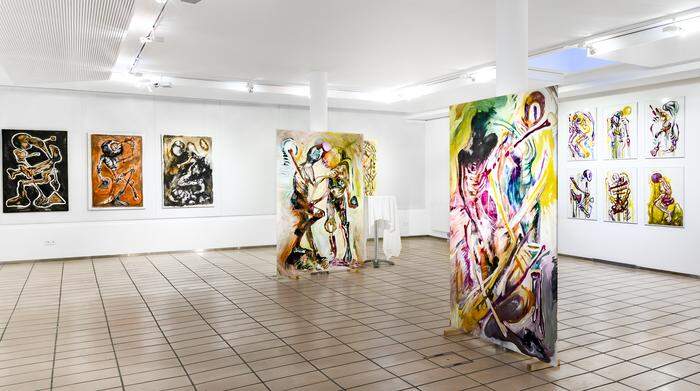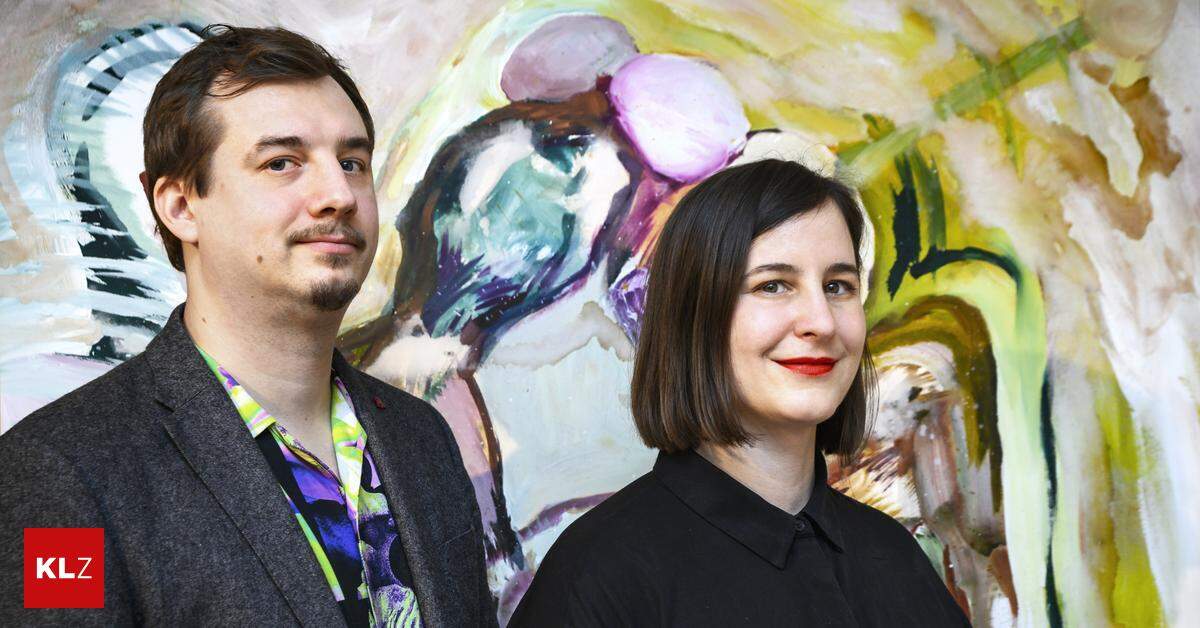They succeed in making the drawn line become spatial: in works executed entirely in pen, whose complex descriptions often fill entire rooms and turn into compositional narratives. The fact that Marilyn Leitner and Michael Chetning often conducted extensive research on the subject and background in advance of their collaborative work on “Studio Asynchrome” became as much a trademark of the duo as the political dimension of their straightforward narratives.
So it may come as a surprise that the two seem to be taking a very different direction in their latest collaborative work: “Body Works” is the title of the show, which can be seen until mid-June at the Gerhard Roth Hall. Greithhaus in St. Ulrich, southwest Styria. Drawn and drawn bodies, body parts and fragments, bones and organs—sometimes like scattered puzzle pieces, sometimes like a dance—collect themselves on papers and canvases, the bodies seeming to be in a state of dissolution or at least transformation. There are finely lined, sometimes intensely coloured, ink works, and there in impasto mixed media executed with grand gestures.

Drawn and painted bodies, body parts and fragments, bones and organs – sometimes like scattered puzzle pieces, sometimes like a dance
© Ulrich Rauch
As in all of the duo's projects, Leitner says, “Body Works” is created in dialogue and in the performative act. Against the background of Asynchrome's years of dealing with social and political questions, anyone who wants can find the reconquest in the physical images: care, intimacy, playfulness, and aggression can be read through the interplay of skulls, torsos, limbs, and bones. As always with Studio Asynchrome, social questions and assemblages are also integrated in large-scale drawings and paintings: the body as product and producer of society also becomes visible in sensual, seemingly personal works.
A new theatrical form
The “Mono” show inspired by Samuel Beckett's “Endgame” also revealed fragments of physical and political extremes at the opening of the “Body Works” exhibition: With the delicately ominous trumpet tones of Franz Hotzinger as a dialogue partner, actor Heinz Weichelbraun explored the apocalypse in haunting solo texts. : The beginning of a new theatrical form in which the house collaborates with actor Simon Hazel from Wiz: Greth Duncan wants to explore dramatic (reflective) spaces of the present twice a year – next on October 26, where Hazel and Clemens Bergdorf will be the “best candidates” in the Sunday question. As well as the moot point of whether this can be done without populism…

“Mono”: Heinz Weichelbraun, Franz Hotzinger
© Ulrich Rauch

“Travel aficionado. Certified problem solver. Pop culture guru. Typical writer. Entrepreneur. Coffee trailblazer.”








More Stories
Magic Abba – Europe's #1 Music Show Live with the Band
Joseph Hader faces 'turbulence surrounding a peaceful person'
Live streaming platform Kino VOD Club brings focus to Graz